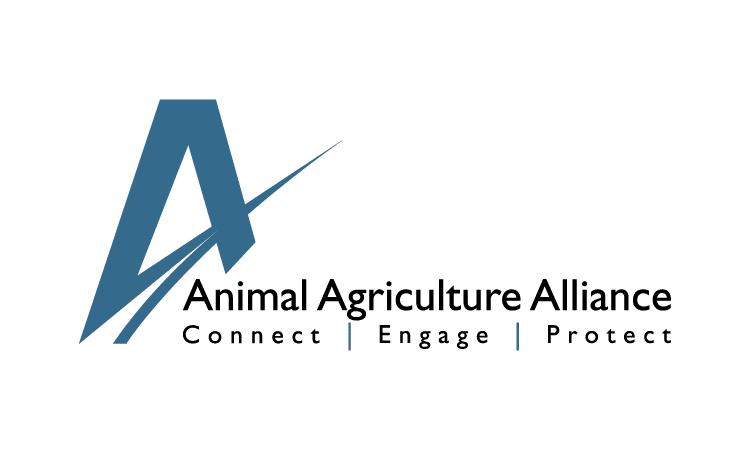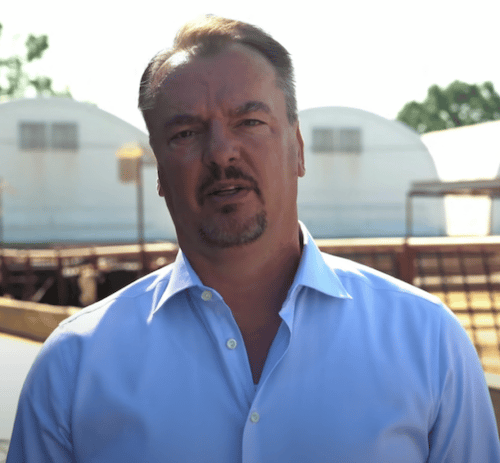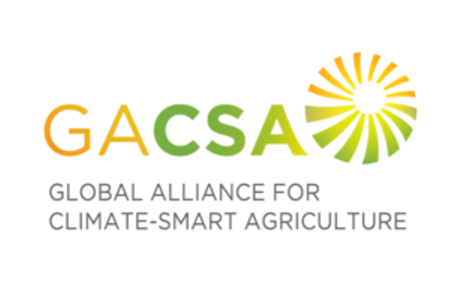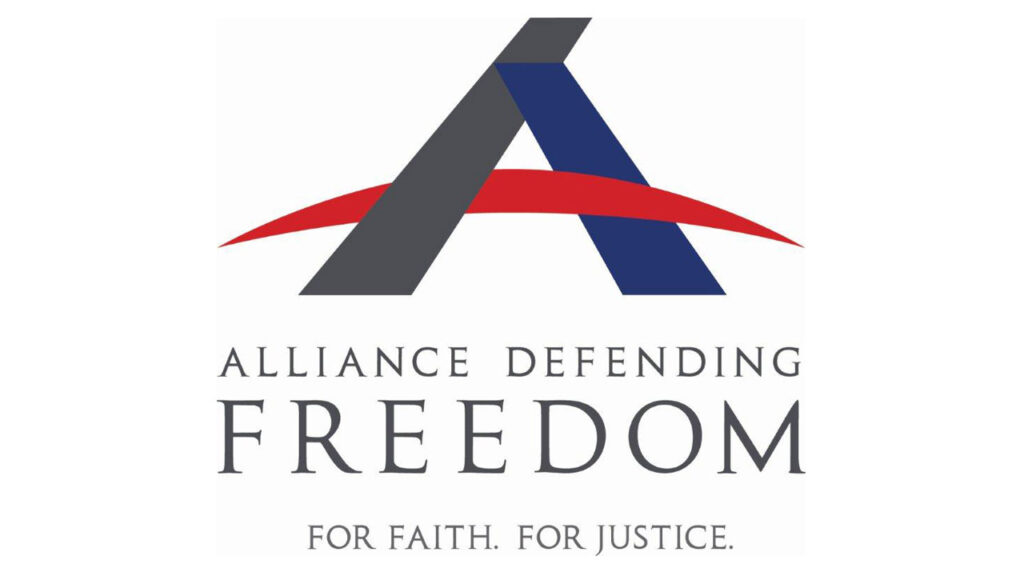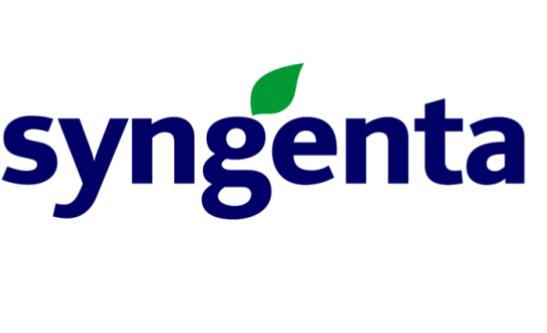Background
The Animal Agriculture Alliance (AAA) is a US-based non-profit organisation that “brings together farmers, ranchers, veterinarians, animal feed companies, animal health companies, processors, allied associations and others involved in getting food from the farm to our forks”, according to its website.1“About Page,” Animal Agriculture Alliance. Archived July 15, 2021. Archive.ph URL: https://archive.ph/hdfco
Headquartered in Arlington, Virginia, and founded in 1987, the Animal Agriculture Alliance works to “connect key food industry stakeholders to arm them with responses to emerging issues” and “promote consumer choice by helping them better understand modern animal agriculture.”2“About Page,” Animal Agriculture Alliance. Archived July 15, 2021. Archive.ph URL: https://archive.ph/hdfco
The AAA monitors consumer, environmental and animal advocacy groups,3“MONITORING ACTIVISM,” Animal Agriculture Alliance. Archived July 15, 2021. Archive.ph URL: https://archive.ph/JcReo including Greenpeace, Food and Water Watch, Friends of the Earth, and the Natural Resources Defense Council,4“GROUP PROFILE: KEY ENVIRONMENTAL GROUPS,” Animal Agriculture Alliance. Archived July 15, 2021. Archive.ph URL: https://archive.ph/91kr4 totalling 170 profiles on groups as of 2020.5“ANIMAL AGRICULTURE ALLIANCE ANNUAL REPORT,” Animal Agriculture Alliance. Archived July 15, 2021. Archive.ph URL: https://archive.ph/QaZLN The organisation’s monitoring activities include sending briefings and alerts to members about critics of the livestock industry6Glenn Greenwald. “New Documents Reveal How the Animal Agriculture Industry Surveils and Punishes Critics,” The Intercept, October 10, 2020. Archived July 15, 2021. Archive.ph URL: https://archive.ph/j3U5m and “books, movies or television shows” the organisation believes promote animal rights messaging.7“ANIMAL AGRICULTURE ALLIANCE ANNUAL REPORT,” Animal Agriculture Alliance. Archived July 15, 2021. Archive.ph URL: https://archive.ph/QaZLN
Stance on Climate Change
At the AAA’s 2021 Virtual Stakeholders Summit, the organisation announced plans to “change the narrative and position animal agriculture as a solution to reducing our environmental footprint and improving our planet for generations to come.”8“Rethink methane and change the narrative around animal agriculture and the environment at 2021 Virtual Summit,” The Fence Post, March 29, 2021. Archived July 15, 2021. Archive.ph URL: https://archive.ph/4AfbG
In the AAA’s 2020 Sustainability Impact report, the organisation states: “Some critics claim meat, milk, poultry and eggs can be removed from the diet to save the planet and our health. Claiming a seemingly simple solution as the cure for human and planet health is not only misguided, but irresponsible. […] Mitigating climate change or improving overall human health are complex issues and thus require a robust, multi-faceted approach […].”9“SUSTAINABILITY IMPACT REPORT,” Animal Agriculture Alliance. Archived July 15, 2021. Archive.ph URL: https://archive.ph/9LML3
Livestock emissions
The AAA states that “animal agriculture is often villainized as a climate change culprit.”10“Changing the Narrative: Animal Agriculture as a Path Forward to Climate Neutrality,” Whova, May 5, 2021. Archived July 15, 2021. Archive.ph URL: https://archive.ph/XwOeZ The organisation cites figures from the Environmental Protection Agency (EPA), claiming that “agriculture accounts for a total of 9 percent of U.S. GHG [greenhouse gas] emissions while livestock production is 3.9 percent.” It says that beef production accounts for “6 percent of global GHG emissions, but approximately 2 percent of U.S. GHG emissions because of the industry’s unparalled [sic] efficiency and dedication to stewardship.”11“SUSTAINABILITY IMPACT REPORT,” Animal Agriculture Alliance. Archived July 15, 2021. Archive.ph URL: https://archive.ph/9LML3
According to a 2021 New York University study, however, the US meat industry “takes advantage of large overall US emissions and frames emissions as a relative percentage rather than absolute terms” to downplay the industry’s climate footprint.12Oliver Lazarus, Sonali McDermid & Jennifer Jacquet. “The climate responsibilities of industrial meat and dairy producers,” Springer Link, March 25, 2021. Archived July 15, 2021. Archive.ph URL: https://archive.ph/j0n9a The EPA’s estimate does not factor in land use when calculating agriculture’s share of GHG emissions, which accounts for a large proportion of meat emissions.13“Inventory of U.S. Greenhouse Gas Emissions and Sinks: 1990-2016 – Agriculture,” EPA GOV. Archived July 15, 2021. Archive.ph URL: https://archive.ph/TsSwK
Key Narratives
The Animal Agriculture Alliance promotes a number of narratives to justify the meat industry’s business model. Find out more about how the meat industry is climate-washing its activities in our investigation. And you can read counter-arguments and criticisms of these narratives in our factsheet.
‘Animal agriculture isn’t a serious driver of climate change’
‘Animal agriculture’s climate impact is exaggerated’
At the Animal Agriculture Alliance’s 2021 Virtual Stakeholders Summit, the organisation hosted a presentation by air quality scientist Dr Frank Mitloehner from the Department of Animal Science at the University of California, Davis (UCD). According to a description of the event: “By rethinking methane, UC-Davis’ Frank Mitloehner, PhD, will show that animal agriculture’s impact on global warming has not only been exaggerated, but its ability to capture carbon from the atmosphere is underappreciated.”14“Changing the Narrative: Animal Agriculture as a Path Forward to Climate Neutrality,” Whova, May 5, 2021. Archived July 15, 2021. Archive.ph URL: https://archive.ph/XwOeZ
Prior to the summit, AAA’s president and CEO Kay Johnson Smith stated in an interview with the agricultural newspaper The Fence Post: “Dr. Mitloehner’s research on the relationship between animal agriculture and climate change is truly fascinating. For years, livestock have been targeted and demonized for their methane emissions, and now we have the opportunity to change the narrative and position animal agriculture as a solution to reducing our environmental footprint and improving our planet for generations to come.”15“Rethink methane and change the narrative around animal agriculture and the environment at 2021 Virtual Summit,” The Fence Post, March 29, 2021. Archived July 15, 2021. Archive.ph URL: https://archive.ph/4AfbG
Researchers at the Johns Hopkins Center for a Livable Future have criticised Mitloehner’s research for using “incomplete greenhouse gas emissions statistics to downplay the environmental impacts of animal agriculture” by focusing on enteric fermentation, a digestive process that causes ruminant animals to emit methane, and manure management, while excluding other livestock emissions, such as the production of animal feed and forage and land-use changes.16“A Response to Dr. Frank Mitloehner’s White Paper, “Livestock’s Contributions to Climate Change: Facts and Fiction”,” Johns Hopkins Bloomberg School of Public Health. Archived July 15, 2021. Archive.ph URL: https://archive.ph/UtL4l
Matthew Hayek, environmental scientist at New York University, argues the claim that methane can be climate neutral is a case of “creative accounting.”17Jenny Splitter. “Can You Trust a Pro-Beef Professor? It’s Complicated,” Undark, March 2, 2021. Archived July 14, 2021. Archive.ph URL: https://archive.ph/e4RpW
‘US meat is environmentally friendly’
The organisation states that “animal agriculture is responsible for just 4% of total U.S. greenhouse gas emissions.”18“CLIMATE, FOOD, FACTS,” Animal Agriculture Alliance. Archived July 15, 2021. Archive.ph URL: https://archive.ph/LmMzm According to the organisation, “livestock production in the U.S. is a model for the rest of the world,” asserting that “each industry has made tremendous improvements in all areas of farming, including environmental sustainability.”19“SUSTAINABILITY IMPACT REPORT,” Animal Agriculture Alliance. Archived July 15, 2021. Archive.ph URL: https://archive.ph/9LML3 In 2019, Kay Johnson Smith, president and CEO of the AAA, stated that US farmers are reducing GHG emissions “to record lows.”20Alex Matthews-King. “International treaty needed to stop ‘Big Food’ industry driving obesity and climate change, report says,” The Independent, January 28, 2019. Archived July 15, 2021. Archive.ph URL: https://archive.ph/bSwIG
A 2021 NYU study argued that the US meat industry “takes advantage of large overall US emissions and frames emissions as a relative percentage rather than absolute terms” to downplay the industry’s climate footprint.21Oliver Lazarus, Sonali McDermid & Jennifer Jacquet. “The climate responsibilities of industrial meat and dairy producers,” Springer Link, March 25, 2021. Archived July 15, 2021. Archive.ph URL: https://archive.ph/j0n9a The EPA’s estimate, from which the 4 percent figure is taken, does not factor in land use and land-use change when calculating agriculture’s share of GHG emissions, which account for a large proportion of meat emissions.22“Inventory of U.S. Greenhouse Gas Emissions and Sinks: 1990-2016 – Agriculture,” EPA GOV. Archived July 15, 2021. Archive.ph URL: https://archive.ph/TsSwK
‘Grazing supports biodiversity’
According to the organisation, “sheep grazing is a promising tool for enhancing wildlife habitats” and “sheep foraging habits help create and maintain biological diversity.”23“SUSTAINABILITY IMPACT REPORT,” Animal Agriculture Alliance. Archived July 15, 2021. Archive.ph URL: https://archive.ph/9LML3 The organisation claims that grazing cattle “can be an important part of regenerating native grasslands in desertified land areas” and “increases soil richness and encourages plant growth.”24“CELL-BASED MEAT, PART 3: ENVIRONMENTAL IMPACT,” Animal Agriculture Alliance. Archived July 15, 2021. Archive.ph URL: https://archive.ph/VH6g0
However, a 2014 study on the concept of “grazed ecosystems”, also known as “holistic management”, found that “the application of HM [holistic management] principles of trampling and intensive foraging are as detrimental to plants, soils, water storage, and plant productivity as are conventional grazing systems.”25John Carter et al. “Holistic Management: Misinformation on the Science of Grazed Ecosystems,” Hindawi, April 23, 2014. Archived July 15, 2021. Archive.ph URL: https://archive.ph/OWeNO
‘Livestock convert inedible material into food for human consumption’
According to the organisation, “89% of cattle diets are inedible to humans” and “livestock bring value to sustainable food systems by upcycling plant proteins into higher quality proteins.”26“2020 Virtual Stakeholders Summit Highlights Report,” Animal Agriculture Alliance. Archived July 16, 2021. Archive.ph URL: https://archive.ph/fLRCl
A 2018 Science study estimates that the production of animal-based foods requires 83 percent of the world’s farmland, yet provides only 37 percent of global protein and 18 percent of global calories.27J. Poore and T. Nemecek. “Reducing food’s environmental impacts through producers and consumers,” Science, June 1 2018. Archived July 14, 2021. Archive.ph URL: https://archive.ph/O6jDB According to a 2019 study by environmental scientists from Harvard University, transitioning to a more plant-based food production system in the UK has the potential to free up large areas of land currently used for grazing and animal feed production while improving the country’s carbon footprint and still meeting the population’s nutrition requirements.28Helen Harwatt and Matthew N. Hayek. “Eating Away at Climate Change with Negative Emissions,” Harvard Law School, April 11, 2019. Archived July 14, 2021. Archive.ph URL: https://archive.ph/8aWUr
‘Plant-based diets do not solve the problem of climate change’
‘Dietary change is an ineffective climate strategy’
In 2019, the organisation criticised the EAT-Lancet Commission Report on Food, Planet, Health for ignoring “evidence of meat and dairy’s contributions to healthy, sustainable diets” and claiming that “the Commission’s radical recommendations to drastically limit meat and dairy consumption would have serious, negative consequences for the health of people and the planet.”29“STATEMENT ON EAT-LANCET,” Animal Agriculture Alliance. Archived July 16, 2021. Archive.ph URL: https://archive.ph/qaIgb
In 2018, AAA criticised commercial real estate company WeWork for no longer serving dishes containing meat, claiming that “WeWork could have a much larger impact focusing on using energy-efficient lighting, reducing food waste, recycling and encouraging employees to drive less by using public transportation and carpooling when possible.”30“WEWORK GOING VEGETARIAN DOESN’T WORK,” Animal Agriculture Alliance. Archived July 16, 2021. Archive.ph URL: https://archive.ph/aciyk
A 2018 study published in Nature, however, found that reducing meat consumption is crucial to lowering the food system’s emissions and that “[i]f socioeconomic changes towards [meat-heavy] Western consumption patterns continue, the environmental pressures of the food system are likely to intensify, and humanity might soon approach the planetary boundaries for global freshwater use, change in land use, and ocean acidification.”31Marco Springmann, Michael Clark, Daniel Mason-D’Croz et al. “Options for keeping the food system within environmental limits,” Nature, October 10, 2018. Archived July 14, 2021. Archive.ph URL: https://archive.ph/dCJgx
‘Less meat and dairy are wasted than fruit and vegetables’
The organisation states that “globally, fruits and vegetables are two to three times more likely to be wasted than meat and dairy.”32“CLIMATE, FOOD, FACTS,” Animal Agriculture Alliance. Archived July 15, 2021. Archive.ph URL: https://archive.ph/LmMzm
Studies have found “plant-based diets are also more climate friendly when they are wasted,” however. Researchers from the University of Michigan showed that “fruits and vegetables which comprise 33 percent of food waste [in the U.S.], account for only 8 percent of carbon dioxide emissions,” while animal products “account for 33 percent of food waste by mass and 74 percent of carbon dioxide emissions.”33Bingli Chai. “Which Diet Has the Least Environmental Impact on Our Planet? A Systematic Review of Vegan, Vegetarian and Omnivorous Diets,” Research Gate. Archived July 14, 2021. Archive.ph URL: https://archive.ph/GAqJt
‘Meat is needed for a healthy diet and to feed the world’
‘Meat is needed to feed a growing global population’
The organisation states that “feeding the world is no easy task, but the animal agriculture industry is up for the challenge” and to “feed a growing population safely and efficiently […] the entire animal agriculture industry has worked tirelessly to identify areas for improvement.”34“SUSTAINABILITY IMPACT REPORT,” Animal Agriculture Alliance. Archived July 15, 2021. Archive.ph URL: https://archive.ph/9LML3
The AAA’s 2021 annual summit included a talk by Alison Van Eenennaam from the Department of Animal Genomics and Biotechnology at the University of California, Davis. According to the event description, Van Eenennaam would “share ways to tell the story about how both cell-based and conventional meat producers are working to use science and innovation to address the global protein demand challenge.”35“2021 Virtual Stakeholders Summit,” Whova. Archived July 16, 2021. Archive.ph URL: https://archive.ph/jyubt
According to the World Resources Institute (WRI), a sustainable development organisation, feeding 10 billion people by 2050 without transitioning to a more plant-based global diet36Tim Searchinger et al. “CREATING A SUSTAINABLE FOOD FUTURE,” World Resource Institute. Archived July 14, 2021. Archive.ph URL: https://archive.ph/awSZe would necessitate the destruction of the world’s remaining forests and “agriculture alone would produce almost twice the emissions allowable from all human activities.37Damian Carrington. “Beef-eating ‘must fall drastically’ as world population grows,” The Guardian, December 5, 2018. Archived July 14, 2021. Archive.ph URL: https://archive.ph/Ltffu
‘Meat is a vital part of a healthy, balanced diet’
The organisation states that “meat, poultry, dairy and eggs ARE sustainable food choices that have a role to play in a healthy, balanced diet,”38“NEVER FEAR, MEAT WILL STILL BE HERE,” Animal Agriculture Alliance. Archived July 16, 2021. Archive.ph URL: https://archive.ph/ZEg09 concluding in an internal analysis that meat and dairy provide “unmatched nutrition for healthy bodies, brains and bones.”39ALLISON AUBREY. “If We All Ate Enough Fruits And Vegetables, There’d Be Big Shortages,” Delaware Public Media, July 17, 2019. Archived July 16, 2021. Archive.ph URL: https://archive.ph/f177T In an article celebrating National Nutrition Month, the organisation warned against transitioning to a meat-free diet, noting that “B12 is only found naturally in animal-based products.”40“WHY YOU CAN’T BEAT MEAT,” Animal Agriculture Alliance. Archived July 16, 2021. Archive.ph URL: https://archive.ph/t1V8T
Nutrition associations, including the British Nutrition Foundation, approve of meat-free diets.41“Plant-based diets,” British Nutrition Foundation. Archived July 14, 2021. Archive.ph URL: https://archive.ph/Afaf1 According to the American Dietetic Association, “appropriately planned vegetarian diets, including total vegetarian or vegan diets, are healthful, nutritionally adequate, and may provide health benefits in the prevention and treatment of certain diseases.”42Winston J Craig, Ann Reed Mangels and American Dietetic Association. “Position of the American Dietetic Association: vegetarian diets,” PubMed.Archived July 14, 2021. Archive.ph URL: https://archive.ph/JLA9T
‘Innovations in animal agriculture will tackle climate change’
‘Emissions intensity reduction is a climate solution’
The organisation asserts that the US livestock industry is “committed to continuous improvement and doing more with less.” It says US chicken farmers “decreased greenhouse gas emissions by 36 percent” from 1965-2010, cattle ranchers “have reduced their overall carbon footprint by 16 percent” since 1977, and “pig farmers decreased their overall carbon footprint by 7.7 percent” from 1960-2015.43“SUSTAINABILITY IMPACT REPORT,” Animal Agriculture Alliance. Archived July 15, 2021. Archive.ph URL: https://archive.ph/9LML3
Sustainability non-profits GRAIN and the Institute for Agriculture and Trade Policy (IATP) argue “that the large gains in ‘efficiency’ realised by industrial farming in the twentieth century will be hard to repeat without major ecological, social and health impacts.”44GRAIN and the Institute for Agriculture and Trade Policy (IATP).“Emissions impossible: How big meat and dairy are heating up the planet,” GRAIN, July 18, 2018. Archived July 14, 2021. Archive.ph URL: https://archive.ph/v0grw
‘Technological innovations will cut emissions’
In its 2020 annual report, the Animal Agriculture Alliance states: “The topic of responsible and sustainable animal agriculture has received a lot of attention in recent years […]. We help the industry share about how animal agriculture is committed to innovation and advancing sustainable farming methods.”45“ANIMAL AGRICULTURE ALLIANCE ANNUAL REPORT,” Animal Agriculture Alliance. Archived July 15, 2021. Archive.ph URL: https://archive.ph/QaZLN The organisation names anaerobic digesters, improved nutrition and genetics, manure management technologies, precision feed management46“SUSTAINABILITY IMPACT REPORT,” Animal Agriculture Alliance. Archived July 15, 2021. Archive.ph URL: https://archive.ph/9LML3 and feeding seaweed to cows as methods to reduce the environmental impact of livestock production.47“WHAT DO METHANE DIGESTERS, SEAWEED AND FEED ADDITIVES HAVE IN COMMON?,” Animal Agriculture Alliance, March 29, 2021. Archived July 16, 2021. Archive.ph URL: https://archive.ph/tetgm
Environmental campaigners have criticised manure management technologies such as biogas digesters for “supporting and helping to perpetuate large-scale factory farming—and in some cases, causing farms to grow in size—under the guise of mitigating climate change.”48Gosia Wozniacka. “Are Dairy Digesters the Renewable Energy Answer or a ‘False Solution’ to Climate Change?,” Sentient Media, April 24, 2020. Archived July 16, 2021. Archive.ph URL: https://archive.ph/6oDlD And researchers at NYU Department of Environmental Studies and Concordia University regard the benefits of feeding seaweed to cows as limited “both in its capacity to reduce cows’ methane emissions and its potential to scale up to the size of the problem”, referring to the size and environmental impact of the livestock industry.49JAN DUTKIEWICZ & MATTHEW HAYEKIDEAS. “Want Carbon-Neutral Cows? Algae Isn’t the Answer,” Wired, March 17, 2021. Archived July 16, 2021. Archive.ph URL: https://archive.ph/KDdUH
Funding
In 2020, the organisation declared it received the following proportions of funding from different sectors:50“ANIMAL AGRICULTURE ALLIANCE ANNUAL REPORT,” Animal Agriculture Alliance. Archived July 15, 2021. Archive.ph URL: https://archive.ph/QaZLN
- 27 percent from poultry producers
- 15 percent from pork producers
- 14 percent from PR and publishing
- 11 percent from dairy producers
- 11 percent from the animal health and nutrition sector
- 5 percent from the crop and feed sector
- 5 percent from beef producers
- 4 percent from multi-species associations
- 2 percent from individual funders
- 6 percent from other sources.
During the same year, the organisation launched a programme titled “Animal Ag Allies” to “empower farmers, ranchers and practising veterinarians to be outspoken advocates for agriculture online and within their communities.” The programme was sponsored by the Animal Health Institute, Seaboard Foods, the National Turkey Federation, Merck Animal Health, the Institute for Feed Education and Research, the Professional Dairy Producers Foundation, and Zoetis, the world’s leading producer of animal medicine and vaccinations.51“Animal Agricultural Alliance launches Animal Ag Allies program,” National Hog Farmer, July 14, 2020. Archived July 16, 2021. Archive.ph URL: https://archive.ph/H4Vye
The organisation’s 2021 summit’s principal sponsors were the North Carolina Farm Bureau and Mountaire Foods.52“2021 Virtual Stakeholders Summit,” Whova. Archived July 16, 2021. Archive.ph URL: https://archive.ph/jyubt
Other sponsors included:
- The U.S. Poultry & Egg Association
- Farm Journal
- WATT Global Media
- Meatingplace
- National Pork Producers Council
- Zoetis
- Iowa Soybean Association
- National Cattlemen’s Beef Association (NCBA)
- Tyson Foods
- United Soybean Board
- Merck Animal Health
- National Turkey Federation
- Nutrien
- Boehringer Ingelheim
- Seaboard Foods
- Aviagen
- Hy-Line North America
- Dairy Farmers of America (DFA)
- Genus
- Hendrix Genetics BV
- C.O.nxt, Inc.
- Smithfield Foods
- American Feed Industry Association (AFIA)
- Pork Checkoff
- Cargill
- Diamond V
- Provimi
- Midwest Dairy
- Country Folks
- Elanco
- Farm Credit Council
- National Biodiesel Board
- Dairymax
- United Egg Producers
- American Farm Bureau Federation
- National Chicken Council
- Progressive Dairy
- The National Provisioner
- Kemin Industries
- Cobb
- Protect the Harvest
- American Veal Association (AVA)
- Vivayic
- Trans Ova Genetics53“2021 Virtual Stakeholders Summit,” Whova. Archived July 16, 2021. Archive.ph URL: https://archive.ph/jyubt
Lobbying
The AAA’s 2021 annual summit included a presentation by Christian Richter, from The Policy Group, a Washington, DC-based consulting firm, and Elizabeth Rumley, a senior staff attorney from the federally funded National Agricultural Law Center “on how animal agriculture has fared since President Biden took office, challenges to come and how we can take advantage of opportunities to represent animal agriculture in the nation’s capital, at statehouses and during policy discussions at every level.”54“2021 Virtual Stakeholders Summit,” Whova. Archived July 16, 2021. Archive.ph URL: https://archive.ph/jyubt
In 2020, the organisation signed an open letter urging authorities to refute “misinformation that tries to manufacture a link between livestock and the spread of Covid-19.” Other signatories of the letter included:55“Open letter stresses value of animal agriculture,” Beef Central, June 9, 2020. Archived July 16, 2021. Archive.ph URL: https://archive.ph/jsuGt
- COPA-COGECA
- European Feed Manufacturers’ Federation (FEFAC)
- International Meat Secretariat
- North American Meat Institute
According to OpenSecrets.org, the Animal Agriculture Alliance financially supported Republican Agriculture Commissioners, a statewide office overseeing animal agriculture, meat inspection, and food safety issues in several US states, in 201656“Republican Agriculture Commissioners,”Open Secrets,August 15, 2016. Archived July 16, 2021. Archive.ph URL: https://archive.ph/4bBPN and the American Farm Bureau in 2013.57“Grants: American Farm Bureau,” Open Secrets. Archived July 16, 2021. Archive.ph URL: https://archive.ph/K6YyX
Affiliations
As of 2020, the organisation’s Board was composed of the following organisations:58“Board,” Animal Agriculture Alliance.Archived July 16, 2021. Archive.ph URL: https://archive.ph/aSMLW
- American Feed Industry Association – Sarah Novak, Chairman of the Board
- Cooper Farms – Rerry Wehrkamp, Immediate Past Chairman
- National Turkey Federation – Joel Brandenberger, Treasurer
- Alltech – Claire Boudwin
- American Farm Bureau Federation – Scott Bennett
- American National CattleWomen, Inc. – Pamela Griffin
- American Sheep Industry Association – Chase Adams
- American Veal Association – David Grant
- C.O.nxt – Laura Moser
- Dairy Farmers of America – David Darr
- Dairy Management Inc. – Lisa McComb
- Elanco Animal Health – Colleen Parr Decker
- Farm Journal Media – Cliff Becker
- Genus PIC – Narender Nehra, Ph.d
- Hy-Line North America – Pete Block
- Iowa Soybean Association – Aaron Putze
- Merck Animal Health – Jessica Meisinger, PhD
- Morning Fresh Farms – Derek Yancey
- National Cattlemen’s Beef Association – Allison Rivera
- National Chicken Council – Tom Super
- National Corn Growers Association – Mike Lefever
- National Pork Board – Brett Kaysen, PhD
- National Pork Producers Council – Dallas Hockman
- New Mexico State University – Robert Hagevoort, PhD
- North American Meat Institute – Eric Mittenthal
- Nutrien – Adam Proctor
- Smithfield – Andy Curliss
- Texas Cattle Feeders Association – Josh Winegardner
- United Egg Producers – Chad Gregory
- United Soybean Board – Charles Cannatella
- U.S. Poultry and Egg Association – Rafael Rivera
- Zoetis – Christina Lood
The organisation’s 2021 annual summit featured representatives from a number of organisations and companies, including:59“2021 Virtual Stakeholders Summit,” Whova. Archived July 16, 2021. Archive.ph URL: https://archive.ph/jyubt
- CLEAR Center, University of California – Davis
- American Farm Bureau Federation
- National Pork Producers Council
- Smithfield Foods
- Burger King
- Nestle
The organisation’s 2020 summit featured representatives from a number of organisations and companies, including:60“2020 VIRTUAL STAKEHOLDERS SUMMIT AGENDA,” Animal Agriculture Alliance. Archived July 16, 2021. Archive.ph URL: https://archive.ph/jFhJt
- National Pork Board
- National Cattlemen’s Beef Association
- North American Meat Institute
- Tyson Foods
Other Resources
Resources
- 1“About Page,” Animal Agriculture Alliance. Archived July 15, 2021. Archive.ph URL: https://archive.ph/hdfco
- 2“About Page,” Animal Agriculture Alliance. Archived July 15, 2021. Archive.ph URL: https://archive.ph/hdfco
- 3“MONITORING ACTIVISM,” Animal Agriculture Alliance. Archived July 15, 2021. Archive.ph URL: https://archive.ph/JcReo
- 4“GROUP PROFILE: KEY ENVIRONMENTAL GROUPS,” Animal Agriculture Alliance. Archived July 15, 2021. Archive.ph URL: https://archive.ph/91kr4
- 5“ANIMAL AGRICULTURE ALLIANCE ANNUAL REPORT,” Animal Agriculture Alliance. Archived July 15, 2021. Archive.ph URL: https://archive.ph/QaZLN
- 6Glenn Greenwald. “New Documents Reveal How the Animal Agriculture Industry Surveils and Punishes Critics,” The Intercept, October 10, 2020. Archived July 15, 2021. Archive.ph URL: https://archive.ph/j3U5m
- 7“ANIMAL AGRICULTURE ALLIANCE ANNUAL REPORT,” Animal Agriculture Alliance. Archived July 15, 2021. Archive.ph URL: https://archive.ph/QaZLN
- 8“Rethink methane and change the narrative around animal agriculture and the environment at 2021 Virtual Summit,” The Fence Post, March 29, 2021. Archived July 15, 2021. Archive.ph URL: https://archive.ph/4AfbG
- 9“SUSTAINABILITY IMPACT REPORT,” Animal Agriculture Alliance. Archived July 15, 2021. Archive.ph URL: https://archive.ph/9LML3
- 10“Changing the Narrative: Animal Agriculture as a Path Forward to Climate Neutrality,” Whova, May 5, 2021. Archived July 15, 2021. Archive.ph URL: https://archive.ph/XwOeZ
- 11“SUSTAINABILITY IMPACT REPORT,” Animal Agriculture Alliance. Archived July 15, 2021. Archive.ph URL: https://archive.ph/9LML3
- 12Oliver Lazarus, Sonali McDermid & Jennifer Jacquet. “The climate responsibilities of industrial meat and dairy producers,” Springer Link, March 25, 2021. Archived July 15, 2021. Archive.ph URL: https://archive.ph/j0n9a
- 13“Inventory of U.S. Greenhouse Gas Emissions and Sinks: 1990-2016 – Agriculture,” EPA GOV. Archived July 15, 2021. Archive.ph URL: https://archive.ph/TsSwK
- 14“Changing the Narrative: Animal Agriculture as a Path Forward to Climate Neutrality,” Whova, May 5, 2021. Archived July 15, 2021. Archive.ph URL: https://archive.ph/XwOeZ
- 15“Rethink methane and change the narrative around animal agriculture and the environment at 2021 Virtual Summit,” The Fence Post, March 29, 2021. Archived July 15, 2021. Archive.ph URL: https://archive.ph/4AfbG
- 16“A Response to Dr. Frank Mitloehner’s White Paper, “Livestock’s Contributions to Climate Change: Facts and Fiction”,” Johns Hopkins Bloomberg School of Public Health. Archived July 15, 2021. Archive.ph URL: https://archive.ph/UtL4l
- 17Jenny Splitter. “Can You Trust a Pro-Beef Professor? It’s Complicated,” Undark, March 2, 2021. Archived July 14, 2021. Archive.ph URL: https://archive.ph/e4RpW
- 18“CLIMATE, FOOD, FACTS,” Animal Agriculture Alliance. Archived July 15, 2021. Archive.ph URL: https://archive.ph/LmMzm
- 19“SUSTAINABILITY IMPACT REPORT,” Animal Agriculture Alliance. Archived July 15, 2021. Archive.ph URL: https://archive.ph/9LML3
- 20Alex Matthews-King. “International treaty needed to stop ‘Big Food’ industry driving obesity and climate change, report says,” The Independent, January 28, 2019. Archived July 15, 2021. Archive.ph URL: https://archive.ph/bSwIG
- 21Oliver Lazarus, Sonali McDermid & Jennifer Jacquet. “The climate responsibilities of industrial meat and dairy producers,” Springer Link, March 25, 2021. Archived July 15, 2021. Archive.ph URL: https://archive.ph/j0n9a
- 22“Inventory of U.S. Greenhouse Gas Emissions and Sinks: 1990-2016 – Agriculture,” EPA GOV. Archived July 15, 2021. Archive.ph URL: https://archive.ph/TsSwK
- 23“SUSTAINABILITY IMPACT REPORT,” Animal Agriculture Alliance. Archived July 15, 2021. Archive.ph URL: https://archive.ph/9LML3
- 24“CELL-BASED MEAT, PART 3: ENVIRONMENTAL IMPACT,” Animal Agriculture Alliance. Archived July 15, 2021. Archive.ph URL: https://archive.ph/VH6g0
- 25John Carter et al. “Holistic Management: Misinformation on the Science of Grazed Ecosystems,” Hindawi, April 23, 2014. Archived July 15, 2021. Archive.ph URL: https://archive.ph/OWeNO
- 26“2020 Virtual Stakeholders Summit Highlights Report,” Animal Agriculture Alliance. Archived July 16, 2021. Archive.ph URL: https://archive.ph/fLRCl
- 27J. Poore and T. Nemecek. “Reducing food’s environmental impacts through producers and consumers,” Science, June 1 2018. Archived July 14, 2021. Archive.ph URL: https://archive.ph/O6jDB
- 28Helen Harwatt and Matthew N. Hayek. “Eating Away at Climate Change with Negative Emissions,” Harvard Law School, April 11, 2019. Archived July 14, 2021. Archive.ph URL: https://archive.ph/8aWUr
- 29“STATEMENT ON EAT-LANCET,” Animal Agriculture Alliance. Archived July 16, 2021. Archive.ph URL: https://archive.ph/qaIgb
- 30“WEWORK GOING VEGETARIAN DOESN’T WORK,” Animal Agriculture Alliance. Archived July 16, 2021. Archive.ph URL: https://archive.ph/aciyk
- 31Marco Springmann, Michael Clark, Daniel Mason-D’Croz et al. “Options for keeping the food system within environmental limits,” Nature, October 10, 2018. Archived July 14, 2021. Archive.ph URL: https://archive.ph/dCJgx
- 32“CLIMATE, FOOD, FACTS,” Animal Agriculture Alliance. Archived July 15, 2021. Archive.ph URL: https://archive.ph/LmMzm
- 33Bingli Chai. “Which Diet Has the Least Environmental Impact on Our Planet? A Systematic Review of Vegan, Vegetarian and Omnivorous Diets,” Research Gate. Archived July 14, 2021. Archive.ph URL: https://archive.ph/GAqJt
- 34“SUSTAINABILITY IMPACT REPORT,” Animal Agriculture Alliance. Archived July 15, 2021. Archive.ph URL: https://archive.ph/9LML3
- 35“2021 Virtual Stakeholders Summit,” Whova. Archived July 16, 2021. Archive.ph URL: https://archive.ph/jyubt
- 36Tim Searchinger et al. “CREATING A SUSTAINABLE FOOD FUTURE,” World Resource Institute. Archived July 14, 2021. Archive.ph URL: https://archive.ph/awSZe
- 37Damian Carrington. “Beef-eating ‘must fall drastically’ as world population grows,” The Guardian, December 5, 2018. Archived July 14, 2021. Archive.ph URL: https://archive.ph/Ltffu
- 38“NEVER FEAR, MEAT WILL STILL BE HERE,” Animal Agriculture Alliance. Archived July 16, 2021. Archive.ph URL: https://archive.ph/ZEg09
- 39ALLISON AUBREY. “If We All Ate Enough Fruits And Vegetables, There’d Be Big Shortages,” Delaware Public Media, July 17, 2019. Archived July 16, 2021. Archive.ph URL: https://archive.ph/f177T
- 40“WHY YOU CAN’T BEAT MEAT,” Animal Agriculture Alliance. Archived July 16, 2021. Archive.ph URL: https://archive.ph/t1V8T
- 41“Plant-based diets,” British Nutrition Foundation. Archived July 14, 2021. Archive.ph URL: https://archive.ph/Afaf1
- 42Winston J Craig, Ann Reed Mangels and American Dietetic Association. “Position of the American Dietetic Association: vegetarian diets,” PubMed.Archived July 14, 2021. Archive.ph URL: https://archive.ph/JLA9T
- 43“SUSTAINABILITY IMPACT REPORT,” Animal Agriculture Alliance. Archived July 15, 2021. Archive.ph URL: https://archive.ph/9LML3
- 44GRAIN and the Institute for Agriculture and Trade Policy (IATP).“Emissions impossible: How big meat and dairy are heating up the planet,” GRAIN, July 18, 2018. Archived July 14, 2021. Archive.ph URL: https://archive.ph/v0grw
- 45“ANIMAL AGRICULTURE ALLIANCE ANNUAL REPORT,” Animal Agriculture Alliance. Archived July 15, 2021. Archive.ph URL: https://archive.ph/QaZLN
- 46“SUSTAINABILITY IMPACT REPORT,” Animal Agriculture Alliance. Archived July 15, 2021. Archive.ph URL: https://archive.ph/9LML3
- 47“WHAT DO METHANE DIGESTERS, SEAWEED AND FEED ADDITIVES HAVE IN COMMON?,” Animal Agriculture Alliance, March 29, 2021. Archived July 16, 2021. Archive.ph URL: https://archive.ph/tetgm
- 48Gosia Wozniacka. “Are Dairy Digesters the Renewable Energy Answer or a ‘False Solution’ to Climate Change?,” Sentient Media, April 24, 2020. Archived July 16, 2021. Archive.ph URL: https://archive.ph/6oDlD
- 49JAN DUTKIEWICZ & MATTHEW HAYEKIDEAS. “Want Carbon-Neutral Cows? Algae Isn’t the Answer,” Wired, March 17, 2021. Archived July 16, 2021. Archive.ph URL: https://archive.ph/KDdUH
- 50“ANIMAL AGRICULTURE ALLIANCE ANNUAL REPORT,” Animal Agriculture Alliance. Archived July 15, 2021. Archive.ph URL: https://archive.ph/QaZLN
- 51“Animal Agricultural Alliance launches Animal Ag Allies program,” National Hog Farmer, July 14, 2020. Archived July 16, 2021. Archive.ph URL: https://archive.ph/H4Vye
- 52“2021 Virtual Stakeholders Summit,” Whova. Archived July 16, 2021. Archive.ph URL: https://archive.ph/jyubt
- 53“2021 Virtual Stakeholders Summit,” Whova. Archived July 16, 2021. Archive.ph URL: https://archive.ph/jyubt
- 54“2021 Virtual Stakeholders Summit,” Whova. Archived July 16, 2021. Archive.ph URL: https://archive.ph/jyubt
- 55“Open letter stresses value of animal agriculture,” Beef Central, June 9, 2020. Archived July 16, 2021. Archive.ph URL: https://archive.ph/jsuGt
- 56“Republican Agriculture Commissioners,”Open Secrets,August 15, 2016. Archived July 16, 2021. Archive.ph URL: https://archive.ph/4bBPN
- 57“Grants: American Farm Bureau,” Open Secrets. Archived July 16, 2021. Archive.ph URL: https://archive.ph/K6YyX
- 58“Board,” Animal Agriculture Alliance.Archived July 16, 2021. Archive.ph URL: https://archive.ph/aSMLW
- 59“2021 Virtual Stakeholders Summit,” Whova. Archived July 16, 2021. Archive.ph URL: https://archive.ph/jyubt
- 60“2020 VIRTUAL STAKEHOLDERS SUMMIT AGENDA,” Animal Agriculture Alliance. Archived July 16, 2021. Archive.ph URL: https://archive.ph/jFhJt

